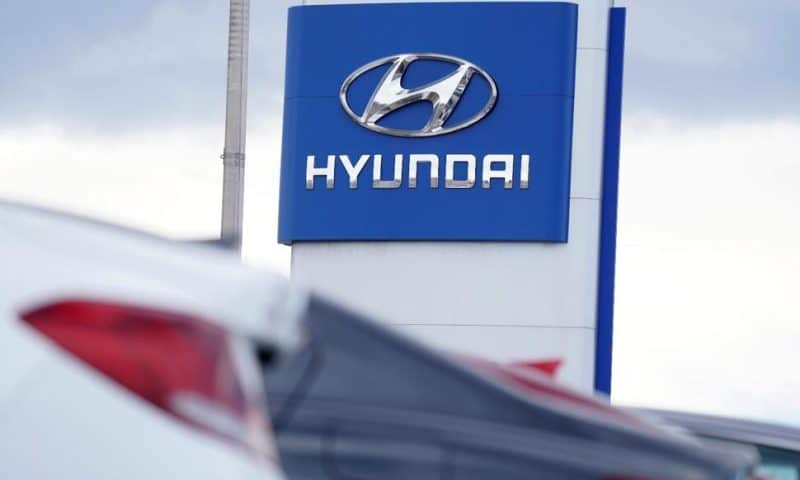Hyundai and LG Energy Solution are spending an additional $2 billion and hiring an extra 400 workers to make batteries at the automaker’s sprawling U.S. electrical vehicle plant that is under construction in Georgia
SAVANNAH, Ga. — Hyundai Motor Group and LG Energy Solution said Thursday they will spend an additional $2 billion and hire an extra 400 workers to make batteries at the automaker’s sprawling U.S. electrical vehicle plant that’s under construction in Georgia.
The announcement by the South Korea-based companies — one a major automaker, the other a leading producer of lithium-ion batteries used to power electric vehicles — expands on a partnership they launched three months ago to produce batteries at the same site west of Savannah, where Hyundai plans to start EV production in 2025.
The news Thursday brings the companies’ total investment in the Georgia plant to more than $7.5 billion and the site’s overall planned workforce to 8,500.
“This incremental investment in Bryan County reflects our continued commitment to create a more sustainable future powered by American workers,” José Muñoz, president and global chief operating officer of Hyundai Motor Company, said in a statement.
Hyundai said in 2022 it would invest $5.5 billion to assemble electric vehicles and batteries on 2,900 acres (1,170 hectares) in the community of Ellabell.
The additional investment and jobs announced Thursday doesn’t mean the Hyundai/ LG battery plant will produce more batteries, Hyundai spokesperson Michael Stewart said. The companies still expect the plant to supply enough batteries for 300,000 EVs per year, the same capacity given when the joint venture was first announced in May.
“The plant does have the potential to expand depending on market conditions and demand,” Stewart said by email, adding: “Hyundai remains very optimistic about the transition to electric vehicles.”
Hyundai has said the Georgia plant initially plans to produce 300,000 vehicles per year, but it could later expand to build 500,000 annually.
Landing Hyundai’s first U.S. plant dedicated to EV manufacturing was hailed as the largest economic development project in Georgia’s history when it was first announced last year. Since then, suppliers have pledged to invest nearly $2.2 billion and to hire 5,000 people.
“Today, we’re building on that success as we continue to make Georgia the e-mobility capital of the nation,” Georgia Gov. Brian Kemp said in a statement hailing Hyundai and LG’s additional investment in the plant.
Georgia and local governments will kick in additional incentives, said Jessica Atwell, a spokeperson for the state Department of Economic Development. However, she said those won’t be disclosed until next week, after documents are finalized.
State and local governments have already pledged $1.8 billion in tax breaks and other perks. The new investment will allow more tax breaks that the company can claim by law, like another $10 million in state income tax credits at $5,250 per job over five years. Atwell said state and local governments could also end up spending more on discretionary incentives like infrastructure aid and equipment subsidies.
The Hyundai package has already been described as the largest subsidy package a U.S. state has ever promised an automotive plant. That is according to Greg LeRoy, executive director Good Jobs First, a group skeptical of subsidies to private companies.
The announcements are part of an electric vehicle and battery land rush across the United States. Under the U.S. Inflation Reduction Act, EVs must be assembled in North America, and a certain percentage of their battery parts and minerals must come from North America or a U.S. free trade partner to qualify for a full $7,500 EV tax credit.
Currently, no Hyundai or Kia vehicles are eligible for the tax credit unless they are leased. Hyundai opposed having foreign-made vehicles excluded, in part because it is building American factories.
Hyundai will need batteries for more than just vehicles made in Ellabell. The company is already assembling electric vehicles at its plant in Montgomery, Alabama, and announced in April it would start assembling its electric Kia EV9 large SUV at the Kia plant in West Point, Georgia.

